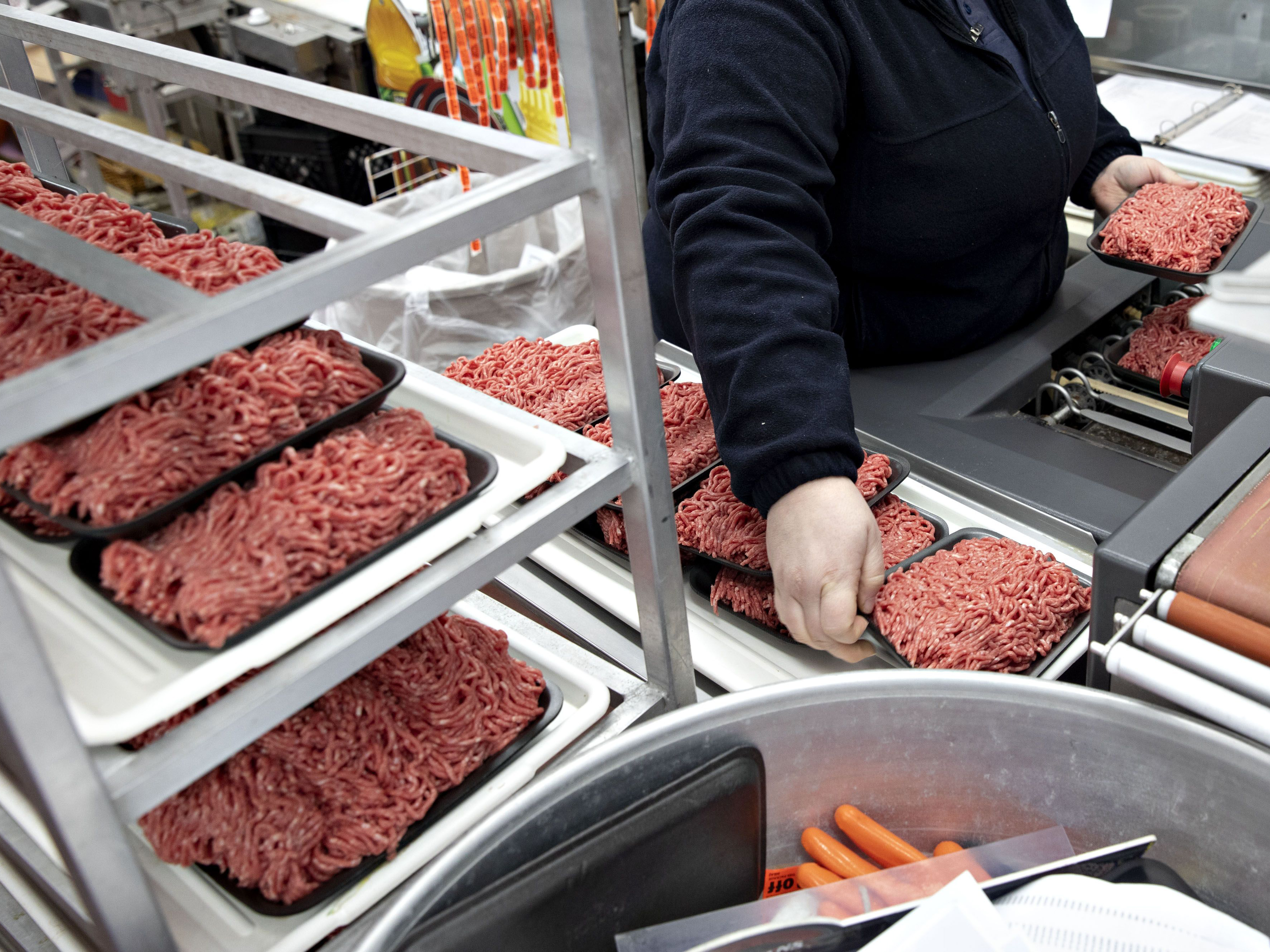
Visit Our Sponsors |
|
|
|
|
|
|
|
|
|
|
|
|
|
|
|
|
|
|
|
|
|
|
|
|
|
|
|
|
|
|
|
|
|
|
|
|
|
|
|
|

A day after Donald Trump’s unprecedented executive order to keep meat plants running, one more shut down. Another opened back up — but only to cull animals that can’t be processed. Those are the latest indications that the sweeping order is anything but a quick fix for supply-chain woes.
Tyson Foods Inc., the biggest U.S. meat processor, late on Wednesday said it was idling a beef facility in Nebraska for four days, with the news hitting just about 24 hours after Trump invoked the Defense Production Act to keep meat supplies secure. A JBS SA plant in Minnesota is starting a mass culling operation, destroying hogs that it can’t process into pork cuts until it’s able to get the protective equipment needed to restart.
Skepticism abounds over how quickly meat supplies can start flowing again. That was underscored by trading in the livestock markets, with U.S. hog and cattle futures falling on Wednesday on scant signs that huge gluts of animals will start easing soon. Meanwhile, unions and advocacy groups blasted the order, calling it a potential death sentence for workers.
“It will ease a lot the pressure for livestock producers, but we don’t anticipate this completely solving the problem,” said McGuireWoods Consulting Senior Vice President Ryan Bernstein, who also operates a family farm in North Dakota. “There will still be bottlenecks. And farmers are still going to have make difficult choices when it comes to depopulating.”
The U.S. has been thrust into a meat crisis after the coronavirus pandemic forced the closure of major plants. While only about a dozen slaughter facilities shuttered, they are massive operations that processed thousands of animals a day. The meat producers have such a stranglehold on output that it’s left the supply chain with few remedies. So farmers are being forced to destroy animals, even as experts warn that protein shortages could hit grocery stores and meat prices surge.
Trump’s executive order was aimed at relieving the situation. He’s mandated the plants stay open, using the Defense Production Act. The government is supposed to provide additional protective gear for employees as well as guidance.
The U.S. Department of Agriculture said it will ask meat processors to submit written plans to safely operate packing plants and review them in consultation with local officials.
But there are plenty of unanswered questions: How quickly can gear and testing be rolled out? How will unions and county authorities focused on containing outbreaks react? How much will stricter distancing measures slow production and when can workers who have fallen ill return? Some answers may come in a White House report that’s being prepared.
Unsurprisingly, meatpackers applauded the administration’s move. But equity investors were circumspect, with shares in heavyweights Tyson Foods Inc. and JBS up less than 1%.
And in the meantime, little has been solved for supplies in the immediate.
Trump’s order is not only aimed at helping farmers find buyers for their animals, but also making sure nervous stay-at-home consumers are supplied with affordable beef and pork.
On Wednesday, wholesale American beef jumped 8% to a record $357.38 per 100 pounds, up 75% from a low in February, according to U.S. Department of Agriculture data. Pork prices gained 2.5% to the highest since 2017.
The order has faced mixed reaction from state and other officials.
Pennsylvania Governor Tom Wolf said the president’s move is expressing “something we all agree with — that is that we need these organizations to stay in business.”
But there will be hurdles to get businesses back up and running.
“Our goal is to be as cooperative as possible, but we do need to get those workers tested and their families tested,” Wisconsin Governor Tony Evers said at a press conference. “And because English isn’t always the first language of the people who are in these situations, we need to make sure things are done appropriately, culturally, and competently. And we have a surge of people working on that right now.”
Even when plants do open back up, it’s unlikely they will be running at full capacity. Workers who are normally jammed elbow-to-elbow on processing lines will need to be spaced out more, and physical barriers will to be added in some places. That will likely slow down line speeds.
In Minnesota, JBS plans to help depopulate about 13,000 hogs until its Worthington plant is back to running normally. Even when processing operations start back up, output will be limited by fewer workers and slower processing lines, according to U.S. Representative Collin Peterson, a Democrat from the state.
“Processing plants were generally in favor of the executive order that would give them liability coverage when reopening,” said Arlan Suderman, chief commodities economist at INTL FCStone in Kansas City. “Yet, the order still does not solve the problem of employee absenteeism.”
Workers who have fallen ill could likely continue to call in sick. And the virus could spread to healthy employees once plants are opened back up and employees are once again in cramped conditions.
”The president’s executive order will only ensure that more workers get sick, jeopardizing lives, family’s income, communities, and of course, the country’s food supply chain,” Kim Cordova, President of Local 7 of the United Food and Commercial Workers International Union, which represents 3,000 workers at the JBS SA beef plant in Greeley, Colorado, said in a statement.
“This is not the Middle ages, and workers are not serfs—toiling at the whim of the management lords of the manor,” Cordova said.
It’s also possible that some workers will take action over the divisive executive order.
“Everything is on the table,” said Kooper Caraway, president of the local arm of the AFL-CIO in Sioux Falls, South Dakota. The union represents employees at the shuttered Smithfield Foods Inc. pork plant. He declined to comment on specific actions under consideration.
“If the intention is to make sure that the production is not slowed down too much, this is a short-sighted measure that will end up slowing production more than it would have,” Caraway said. “They just don’t have the workforce to operate the plant at full capacity right now. Unless the president is going to use the military to help operate the plant, I really don’t know what he expects the plant to do.”
RELATED CONTENT
RELATED VIDEOS
Timely, incisive articles delivered directly to your inbox.






